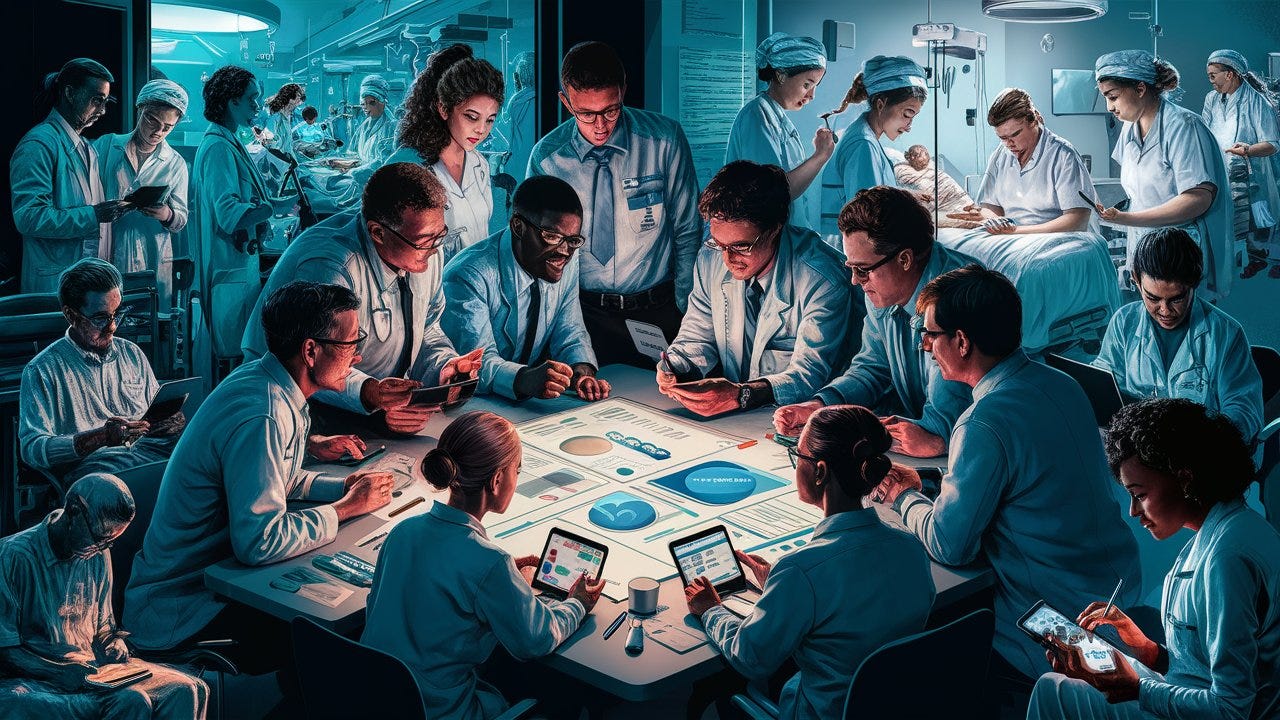Why we need to build NHS tech for NHS people...
Digital can help the NHS right now. The Health Foundation shows that we need to build NHS tech for NHS people. This is exactly what Triscribe does.
The Health Foundation recently issued a report titled “Which Technologies Offer the Biggest Opportunities to Save Time in the NHS?”
It immediately caught my attention because saving NHS staff time is what Triscribe is all about. Right at the top of the Key Points summary, I found this:
“..this analysis spotlights clinicians’ views about which technologies might help the NHS boost productivity and release time for care, and sets out what steps will be important to realise these gains.”
Fantastic. This is exactly what the NHS needs and luckily it is also what Triscribe does. In fact, this simple premise is the driving force behind the whole tech explosion of the last 40 years. Build tech that works for the people who will use it. Not for trusts or governments or hospitals. For people.
So this report is a welcome check against the predominant narrative in NHS tech. A dangerous coalition of political sentiment, centralised top-down projects and legacy vendors follows a different agenda. It’s some murky amalgam of the latest new thing and a 1980s big central systems mindset.
Described in the report as:
“...the typical health policy emphasis on cutting-edge clinical and patient-facing technologies….Too often, the development and spread of health technology are driven by suppliers and procurement processes rather than by what the NHS workforce wants and needs.”
Thank goodness for the Health Foundation. The most valuable aspect of the report follows. A summary of the key things staff really need:
“Our survey found that electronic health records (EHRs) and tools for professional-to-professional communication (including videoconferencing and digital messaging tools) ranked highest in terms of which technologies are saving staff time right now.“
The point is driven home in a later paragraph:
“Many immediate gains will come from optimising and spreading existing technologies rather than adopting new technologies. Our research found that not only are EHRs helping to save time now, but staff said they were one of the technologies most likely to offer further gains over the next 5 years and beyond.”
A survey focused on EHRs underpins the report. So it’s natural to pick those out. I am certain the same applies to EPMA systems and many other areas of the NHS IT landscape.
About Triscribe
And those simple points sum up what Triscribe has to offer:
Use data you already capture from systems you have already invested in.
Build using proven, modern technologies, ideally open source.
Solve that data to give your staff business intelligence and day to day operational tools. Tools you can use to make a difference now.
Save a week of time for every Triscribe user every year. And save enough from your drugs budget to make the business case simple.
Our existing software can be up and running in your hospital in a few weeks. Alongside that, we continue to talk to NHS clinicians and staff. Figure out what they need and build as fast as our resources allow.
This is essential because neither the challenges facing the NHS nor the technology stand still. The report shows your staff are well aware of this:
“The clinical staff we surveyed were on balance optimistic about the potential of artificial intelligence (AI) to save them time in their work within the next 5 years.”
Triscribe is building new features and adding AI where there is value. When someone asks for a simple list of patients, we just do it. We don’t build an AI for that.
I will be completely honest. The “solutions” highlighted in the report don’t go far enough to make a real difference. I am OK with that. One step at a time.
The Health Foundation report recommends NHS tech built for NHS people. If you want to work with a company that brings that idea to life, please get in touch. I would love to show you how Triscribe can make a difference now.
Thanks for reading.


